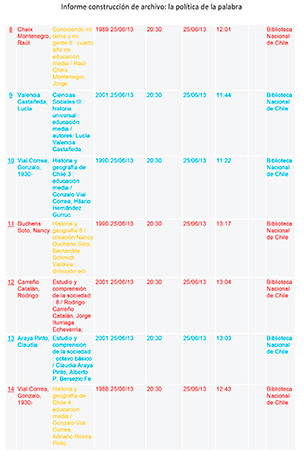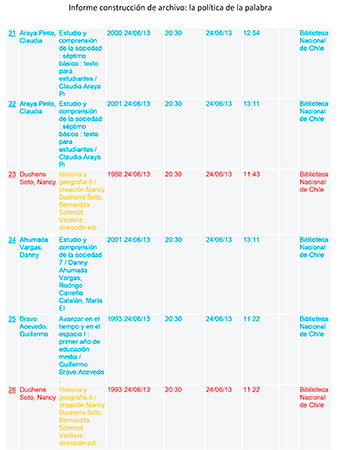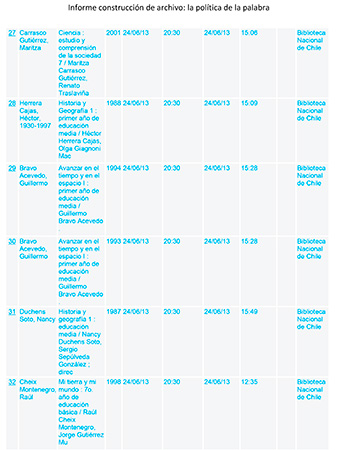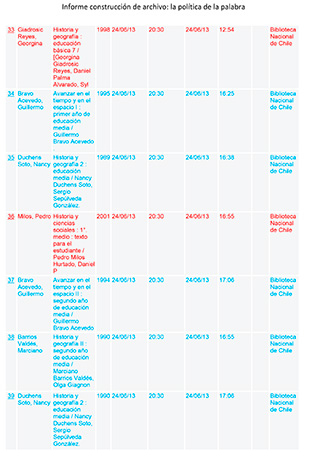The Politics of the Word is a project that tries to be framed inside of the archival practice. His research process problematized the origin of the research material and it developed a methodology for organizing and classifying materials. The research object consists on school teaching texts for the history subject for Chilean children and youth from 7th until 12th grade, edited between 1990 and 2001. They are an intended base by which we can identify clear concepts for every piece: indexes, texts, images, words, full sheets of paper, etc. The research processes focused specifically in how Chilean history related to the 70s, 80s and 90s is taught, e.g. the period of Allende’s Unidad Popular, the coup of 1973, the development of the dictatorship and finally the return to democracy since the 90s.
The concept of archaeology following Foucault is applied regarding how this project is developed collecting and analysing according to the material being analyzed. The project looks afterwards for a construction of its visual proposal. “It does not interpretate the documents, but it approaches it from its inside, organizing, distributing it, putting it into an order, structuring it in levels, establishing series, distinguishing what is pertinent from which is not, signaling elements, defining unities, describing relationships and elaborating discourses.”. Words structure our way of perceiving the environment as well as images. Furthermore when it’s about “the word” being taught thousands of subjects from generation to generation. The control over language is one more front of domination of reality imposed by the interests of economical politics. This is how we thus can identify in history classes texts how power spheres mutate as years go by, analyzing how the line drawing history is also transformed.
But this independence is identical to the general independence of separated powers as a mediation device constituting history. As we write, there is an emerging consciousness which is not being taken (to) (…)
Report on Archive Construction: The politics of the word transmitted in the immediate relationships of the living ones: an impersonal memory, which is society management.
1.The work tries to reflect on how recent history is being taught in our country since the 70s. It shows how it is named and illustrated, how prioritary some events or historical figures have become, the extension of every thematic section of the book, etc. These are indexes of how a social memory and a form of historical and political knowledge is configured in the classrooms of our country. The school text becomes an authority dictating what has to be learned and known.
2.Given the fact that images and words conform our subjectivity, one object is identified: the learning texts as a control dispositive. With the purpose of develating the structures enclosing out modes of perception and with the aim of questioning reality during our education process is it that this work emerges: to identify which kind of “country project” exists behind the edition of these texts.






